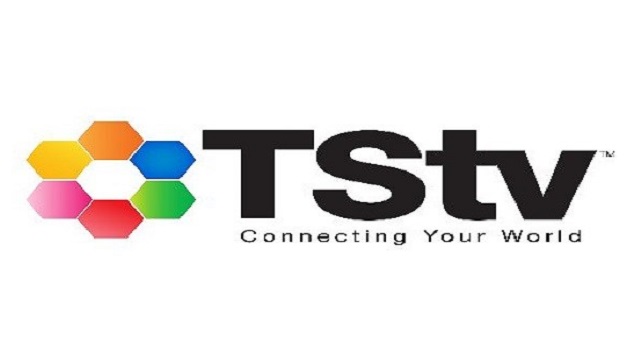Broadcasting
Why is Localisation Crucial for Breaking into New Markets?

By Hyther Nizam, President – MEA, Zoho Corp.
Nigeria has the largest market in Africa with a GDP standing at $514.05 billion in 2021 and a population of over 200 million people. The business scene in Nigeria is faced with many challenges and the survival of any business in this market is dependent on the adoption of successful strategies.

One successful strategy for businesses entering the Nigerian market is localisation. A strong long-term localisation strategy will help in establishing a presence among locals, earning their trust and eventually building brand loyalty.
It is equally critical, however, for businesses to understand that localisation entails more than just providing pricing in local currencies. Instead, it has to be a holistic approach that involves customers, employees, and other relevant stakeholders.
Understanding localisation
Before digging into why localisation is so important and how to undertake it successfully, let’s discuss what it actually means. Localisation refers to the adaptation of a product or a marketing strategy to meet the needs of a specific locale through language, culture, or other relevant factors.
Localisation can be achieved in a number of ways. For example, a product company can offer a local language user experience (UX) and provide vernacular customer support. However, if a company simply uses a translation tool that doesn’t take into account local nuances, such a localisation attempt will create a negative brand perception.
On the other hand, a holistic approach can have major benefits for a business, including easier entry into new markets, increased customer satisfaction and brand loyalty, and ultimately improved revenue.
Beyond translation
Making your product or service available in the local language and providing support are the first few steps towards localisation. There are other considerations you should make too.
For example, if you have an online offering, when you localise it to right-to-left (RTL) languages such as Hebrew, Persian, and Arabic, you should also enable a right-to-left oriented UX layout for better user experience.
Even something as simple as automatically detecting which date format to use in a specific territory (dd/mm/yyyy vs mm/dd/yyyy, for example), or using a comma or dot when writing a large number, can go a long way in building brand affinity.
Local pricing is also important as it allows customers to avoid currency fluctuations. Furthermore, you can integrate your product with local payment gateways and other locally-popular third-party apps in order to increase adoption.
A culture of localisation
Real localisation, however, goes beyond localised offerings. It should be inculcated into your business’s culture. That means taking local cultures and ways of working into consideration when you enter new territories.
At Zoho, we have adopted an approach called “transnational localism”. It brings together the best features of global connectivity with local knowledge and insights. We hire locally in the new territories and train the new employees so that they intimately understand our various offerings and brand values. They, in turn, bring with them a deep understanding of the local markets, and help adapt the offerings.
Ultimately, if your employees buy into this attitude, they’re also more likely to feel empowered to cater to the needs of local customers. This will enable smoother entry into new markets.
Taking advantage of the moment
It’s also worth pointing out that there’s never been a better time to take this kind of holistic
approach to localisation. The past two years have accelerated digital transformation, and customers are more willing to adopt new products and offerings. Thanks to the rise of remote work, meanwhile, there are a whole host of workers who are ideally suited to working for global businesses and who can offer their expertise when it comes to localisation.
The businesses that take advantage of this unique set of circumstances to build fully localised offerings and an open culture of localisation will put themselves in the best possible position to succeed in their expansion plans.
Broadcasting
EFCC Re-Arraigns Echefu, TStv CEO for Allegedly Defrauding Ex-Minister of N1Bn, $1.3m

Bright Echefu, chief executive officer, Telecom Satellites Limited (TStv), and three co‑defendants appeared before the Federal High Court in Abuja yesterday on an amended twelve‑count indictment brought by the Economic and Financial Crimes Commission (EFCC). The charges allege money laundering, tax evasion, and investment fraud involving approximately ₦1 billion and $1.3 million.

Bright Echefu, chief executive officer, TStv
In addition to Echefu, the defendants are TStv Executive Director, Felix Igboanuga, Telecom Satellites Limited itself, and Briechberg Investment Ltd.
According to the April 5, 2025, amended charge sheet the EFCC accuses the quartet of defrauding Mr. Tanimu Turaki, Managing Director of Kalsiyam Global and former Minister of Special Duties, alongside BYI General Limited, out of a combined investment of ₦1 billion and $1.3 million. The commission has also included a ₦66 million alleged tax default.
The revised indictment lists:
Count 2: ₦33,909,542.47 in unremitted Company Income Tax
Count 3: ₦13,519,382.00 in unremitted VAT
Count 4: ₦19,488,860.00 in unremitted PAYE
Counts 5–12: Various fraud‑related transactions, including ₦380 million from Kalsiyam Farm, ₦400 million from BYI General Ltd and $1.35 million in loans secured under false pretences.
All defendants pleaded not guilty once again. At the hearing before Justice Mohammed Umar, Echefu’s lead counsel, Senior Advocate Eyitayo Fatogun, informed the court of ongoing settlement discussions with the complainants.
“There are moves to settle this matter and there was a meeting on Saturday between myself and the Nominal Complainant as it is about investment,” Fatogun stated.
“The Defendants have paid some money and I was thinking that the matter be adjourned for report of settlement.”
EFCC counsel A.S. Tomwell confirmed receipt of those payments but emphasized the necessity of entering a plea before considering any adjournment. The court thus ordered the formal reading of the charges and adjourned the trial to October 15, 2025.
Broadcasting
More Woes for MultiChoice as Ghana Orders 30% Price Cut

The government of Ghana has ordered MultiChoice Ghana to reduce DSTV subscription costs by 30%, noting the significant appreciation of local currency and growing dissatisfaction with current rates.

This comes as Nigeria Data Protection Commission (NDPC) has fined MultiChoice Nigeria ₦766,242,500 for breaching the Nigeria Data Protection Act (NDPA).
According to Mr Babatunde Bamigboye, head Legal, Enforcement & Regulations, NDPC, the investigation, which commenced in the second quarter of 2024, was triggered by suspected breach of privacy rights of Multichoice subscribers and illegal cross-border transfer of personal data of Nigerians.
MultiChoice, which operates across Africa, continues to lose revenue and subscribers.
Ghana’s minister of communication, digital technology, and innovation, Samuel Nartey George, made the call last week during a meeting with a DSTV team led by Dr. Keabetswe Modimoeng, group executive for regulatory and corporate affairs.
According to a ministry statement, George said the government’s responsibility is to respond to Ghanaians’ concerns over high DSTV pricing and outdated content offers.
The Minister pointed out that despite a 30% increase in the cedi’s value over the past five months; DSTV prices have not reflected the positive economic trend.
The statement went on to say the minister is therefore calling for a 30% price reduction to match the cedi’s appreciation and to pass on economic benefits to consumers.
According to the statement, while MultiChoice has implemented promotional packages, people prefer a direct price reduction over temporary discounts.
George said feedback from public engagements revealed that many users are dissatisfied with DSTV’s content, describing it as outdated save for Premier League football. They also believe that the current cost is not justified.
”To address the concerns, he said MultiChoice Ghana has until July 21 to formally respond to the government’s request. The Minister expects a concrete proposal by this date, allowing time for further engagement before the end of July,” the statement said.
In response, Dr. Modimoeng acknowledged the government’s concerns and expressed gratitude for the opportunity to dialogue.
The MultiChoice team reacted positively to the minister’s request and committed to provide input by July 21st. They emphasised the need of balancing public interest and business sustainability.
This is the continent’s latest pricing conundrum for the pan-African pay-TV business, following fee disputes with Nigerian and Malawian authorities.
In Ghana, the demand for price cuts comes as MultiChoice is under pressure, having lost revenue and subscribers in the financial year that ended March 31, 2025. Last month, the company announced its financial year-end results.
In a statement to shareholders last month on the Stock Exchange News Service, the company said the past two financial years have been a period of significant financial disruption for economies, corporates and consumers across Sub-Saharan Africa due to challenging macro-economic factors.
Combined with the impact of structural industry changes in video entertainment, such as the rise of piracy, streaming services and social media, this has materially affected the overall performance of the MultiChoice Group, it noted.
Over this period, MultiChoice said the group lost 2.8 million active linear subscribers and had to absorb a R10.2 billion negative impact on its top line due to local currency depreciation against the US dollar.
For the year, the company reveals that linear subscribers were down 1.2 million, or 8% year-on-year, to 14.5 million active subscribers, with the loss evenly split between South African (600 000) and rest of Africa (600 000).
Broadcasting
NDPC Slaps Multichoice with ₦766M Fine for Data Privacy Violations

Nigeria Data Protection Commission (NDPC) has fined MultiChoice Nigeria ₦766,242,500 for breaching the Nigeria Data Protection Act (NDPA).

NDPC is a public institution that processes data in furtherance of its mandate as Nigeria’s data protection authority and relies on recognised lawful bases for data processing, such as consent, legal obligation, and contract.
The fine was contained in a statement signed by Mr Babatunde Bamigboye, head Legal, Enforcement & Regulations, NDPC.
According to him, the investigation, which commenced in the second quarter of 2024, was triggered by suspected breach of privacy rights of Multichoice subscribers and illegal cross-border transfer of personal data of Nigerians.
“The NDPC found, among others, that Multichoice violated the data privacy rights of subscribers and their friends who are not necessarily subscribers.
The Commission also found that Multichoice carries out illegal cross-border transfer of personal data relating to data subjects in Nigeria.
The depth of data processing by Multichoice is patently intrusive, unfair, unnecessary, and disproportionate.
This is a grave affront to fundamental right to privacy as enshrined in Section 37 of the 1999 Constitution of the Federal Republic of Nigeria.
In line with its standard remediation procedure, the Commission directed Multichoice to carry out appropriate remedial measures.
However, the Commission found the measures undertaken by Multichoice in this regard unsatisfactory.
For want of cooperation, the Commission has directed Multichoice to pay ₦766,242,500 for violating the Nigerian Data Protection Act.
“Nigeria is entitled to protect her citizens and data sovereignty under both international and extant municipal laws, as these have far-reaching implication for rule of law, national security, and economic growth.” the statement said.
Babatunde also revealed that, Vincent Olatunji, national Commissioner, NDPC, has directed that all outlets through which Multichoice is collecting personal data of Nigerian citizens should be investigated for non-compliance.
He added that any outlet that processes personal data in violation of the NDP Act is liable to penalty under the Act.

 News1 day ago
News1 day agoCheck Point Report Finds Africa as Top Target for Cyber-attacks

 E-Financial2 days ago
E-Financial2 days agoGOEs’ Remit Over ₦2tn to FG in 2024

 Telecom2 days ago
Telecom2 days agoSave & Win: FCMB Promo Makes 12 Millionaires, Over 3,000 Winners

 Telecom2 days ago
Telecom2 days agoMTN’s Karl Toriola and Business Leaders Champion Corporate Climate Reform

 General News2 days ago
General News2 days agoSenate Orders Full Probe into N1.3 Trillion CBEX Ponzi Scandal

 E-Business2 days ago
E-Business2 days agoNITDA Reaffirms Commitment to 95% Digital Literacy by 2030, as UBEC Pledges Collaboration

 News1 day ago
News1 day agoJAMB Accuses Student of Securing Admission through Identity Fraud

 General News2 days ago
General News2 days agoUpSkill Universe Launches ‘Skills for Business’ to Empower 10,000 African SMEs, in Collaboration with HP and Google



























